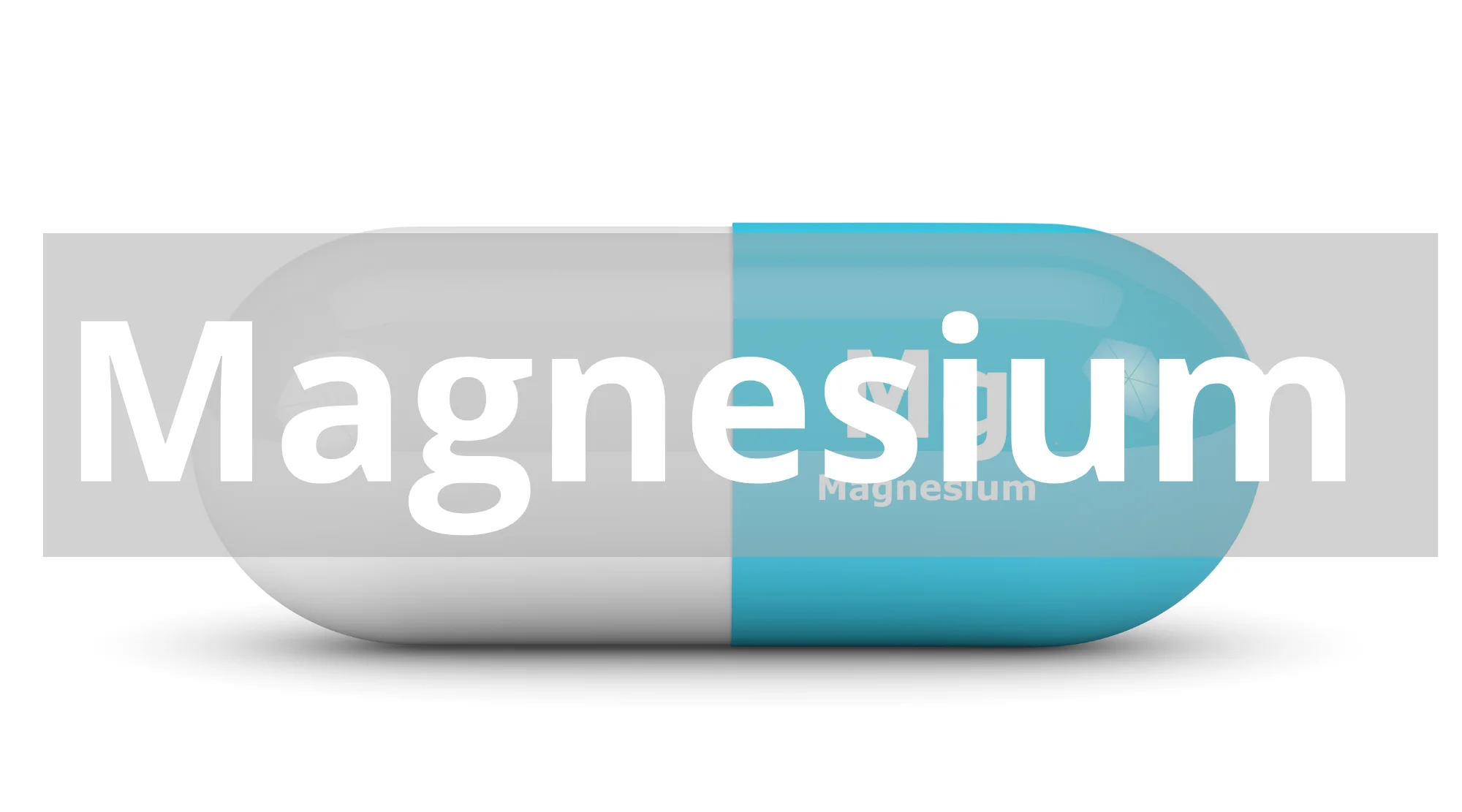Are you taking magnesium supplements daily and still not feeling any different? Many people diligently pop their pills, hoping for relief from muscle cramps, better sleep, or reduced anxiety, only to be left wondering why they aren’t experiencing the promised benefits. The problem isn’t always the magnesium itself, but rather a combination of factors like the type of magnesium, dosage, absorption issues, and underlying health conditions. This article will delve into the common reasons why your magnesium supplement might not be working and provide actionable steps to optimize your intake and finally experience the positive changes you’re seeking.
Why Your Magnesium Supplement Might Not Be Working
Magnesium is an essential mineral involved in over 300 enzymatic reactions in the body. It plays a vital role in muscle function, nerve transmission, blood sugar control, and blood pressure regulation. Despite its importance, many individuals are deficient in this crucial nutrient. Supplementing with magnesium can be beneficial, but it’s not always a guaranteed fix.
Several factors can contribute to the ineffectiveness of your magnesium supplement, from choosing the wrong type to neglecting lifestyle factors that impact absorption. Let’s explore the most common culprits.
The Type of Magnesium Matters
Not all magnesium supplements are created equal. Different forms of magnesium are absorbed and utilized by the body differently. Some common types include:
Magnesium Oxide: This is one of the most common and cheapest forms, but it has poor bioavailability, meaning the body doesn’t absorb it well. It is often used as a laxative due to its low absorption rate.
Magnesium Citrate: This form is better absorbed than magnesium oxide and is often recommended for constipation relief. However, it can still cause digestive upset in some individuals.
Magnesium Glycinate: This form is bound to glycine, an amino acid, which enhances absorption and is gentle on the stomach. It’s often recommended for promoting relaxation and sleep.
Magnesium Threonate: This is a relatively new form that has shown promise in improving cognitive function and brain health. It is believed to cross the blood-brain barrier more effectively than other forms.
Magnesium Sulfate (Epsom Salts): This form is typically used in bath salts for muscle relaxation and pain relief. While some magnesium can be absorbed through the skin, it’s not an efficient way to increase overall magnesium levels.
Choosing the right type of magnesium for your specific needs is crucial. If you’re primarily concerned about sleep and relaxation, magnesium glycinate might be the best choice. If you’re looking for cognitive benefits, consider magnesium threonate.

Dosage and Timing are Key
Even with a high-quality magnesium supplement, taking the wrong dosage or timing it incorrectly can hinder its effectiveness. The recommended daily allowance (RDA) for magnesium varies depending on age, sex, and overall health.
Adult men typically need around 400-420 mg of magnesium per day, while adult women need around 310-320 mg. However, individual needs may vary based on factors like stress levels, physical activity, and underlying health conditions.
It’s best to start with a lower dose and gradually increase it to avoid digestive issues like diarrhea. Dividing the daily dose into smaller portions taken throughout the day can also improve absorption.
The timing of your magnesium supplement can also make a difference. Taking magnesium before bed can promote relaxation and improve sleep quality. Taking it with meals can enhance absorption, but it’s important to avoid taking it with foods high in phytic acid (such as nuts and seeds) as they can interfere with magnesium absorption.
Absorption Issues and Underlying Health Conditions
Even if you’re taking the right type and dosage of magnesium, certain absorption issues and underlying health conditions can prevent your body from properly utilizing the mineral.
Conditions that can interfere with magnesium absorption include:
Gastrointestinal Disorders: Conditions like Crohn’s disease, ulcerative colitis, and celiac disease can impair nutrient absorption in the digestive tract.
Kidney Disease: The kidneys play a crucial role in regulating magnesium levels in the body. Kidney disease can disrupt this process and lead to magnesium deficiency.
Diabetes: High blood sugar levels can increase magnesium excretion through the urine, leading to deficiency.
Certain Medications: Some medications, such as diuretics, proton pump inhibitors (PPIs), and certain antibiotics, can interfere with magnesium absorption or increase its excretion.
If you have any of these underlying health conditions, it’s important to consult with a healthcare professional to determine the best way to optimize your magnesium levels. They may recommend a higher dose of magnesium or alternative forms of supplementation.
Dietary Factors and Lifestyle Habits
Your diet and lifestyle habits can also significantly impact your magnesium levels. A diet lacking in magnesium-rich foods can contribute to deficiency, even if you’re taking a supplement.
Foods rich in magnesium include:
- Leafy Green Vegetables: Spinach, kale, and collard greens are excellent sources of magnesium.
- Nuts and Seeds: Almonds, cashews, pumpkin seeds, and chia seeds are packed with magnesium.
- Legumes: Black beans, kidney beans, and lentils are good sources of magnesium and other essential nutrients.
- Whole Grains: Brown rice, quinoa, and oats provide magnesium and fiber.
- Dark Chocolate: A delicious way to get a magnesium boost!
In addition to diet, certain lifestyle habits can deplete magnesium levels. Chronic stress, excessive alcohol consumption, and regular consumption of sugary drinks can all contribute to magnesium deficiency. Managing stress through techniques like meditation or yoga, limiting alcohol intake, and opting for healthier beverage choices can help optimize your magnesium levels. Check out our article on Mindful Movement for tips on reducing stress.
Are You Mistaking Symptoms?
Sometimes, what you perceive as a lack of effect from magnesium supplementation may stem from misinterpreting your symptoms. Magnesium deficiency can manifest in various ways, including muscle cramps, fatigue, headaches, and anxiety. However, these symptoms can also be caused by other underlying health issues.
It’s important to rule out other potential causes of your symptoms before attributing them solely to magnesium deficiency. Consult with a healthcare professional to get a proper diagnosis and treatment plan.
Testing Your Magnesium Levels
If you suspect you may be deficient in magnesium, you can get your levels tested through a blood test. However, it’s important to note that standard serum magnesium tests may not accurately reflect the total magnesium levels in your body. Most magnesium is stored in bones and tissues, so a serum test only measures the magnesium in your blood.
A more accurate assessment of magnesium status can be obtained through a red blood cell (RBC) magnesium test. This test measures the magnesium levels within red blood cells, providing a better indication of overall magnesium stores in the body.
However, the accuracy and reliability of magnesium testing are still debated within the medical community. The best approach is to discuss your symptoms and concerns with a healthcare professional who can evaluate your individual needs and recommend appropriate testing if necessary.
Other Nutrients and Synergistic Effects
Magnesium doesn’t work in isolation. Its effectiveness can be enhanced by other nutrients and synergistic effects.
For example, vitamin D plays a crucial role in magnesium absorption. Vitamin D deficiency can impair magnesium absorption, even if you’re taking a supplement. Ensuring adequate vitamin D levels through sunlight exposure, diet, or supplementation can improve magnesium utilization.
Similarly, potassium and calcium work closely with magnesium in maintaining electrolyte balance and supporting muscle function. A deficiency in either of these minerals can affect magnesium’s effectiveness.
Finding the Right Magnesium Balance
Optimizing your magnesium levels requires a holistic approach that considers the type of magnesium, dosage, timing, absorption issues, dietary factors, lifestyle habits, and synergistic nutrients.
If you’re not seeing the desired results from your magnesium supplement, consider the following steps:
- Choose the right type: Opt for a highly absorbable form like magnesium glycinate or threonate.
- Adjust your dosage: Start with a lower dose and gradually increase it to find the optimal amount for your needs.
- Time it wisely: Take magnesium before bed for relaxation or with meals for enhanced absorption.
- Address absorption issues: If you have underlying health conditions or are taking medications that interfere with magnesium absorption, consult with a healthcare professional.
- Optimize your diet: Incorporate magnesium-rich foods into your daily meals.
- Manage stress: Practice stress-reducing techniques like meditation or yoga.
- Consider other nutrients: Ensure adequate vitamin D, potassium, and calcium levels.
By taking these steps, you can increase your chances of experiencing the full benefits of magnesium supplementation and improve your overall health and well-being.
In conclusion, taking magnesium daily might not yield the desired results if you’re overlooking crucial factors such as the type of supplement, dosage, absorption issues, and lifestyle habits. By addressing these aspects and adopting a holistic approach, you can unlock the full potential of this essential mineral and experience significant improvements in your health. Remember to consult with a healthcare professional to determine the best course of action for your individual needs.














Post Comment